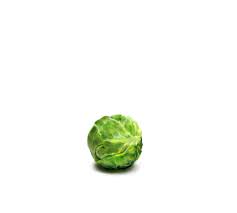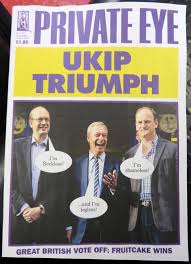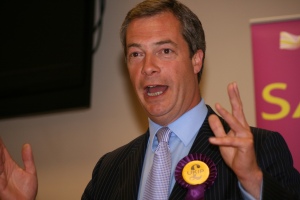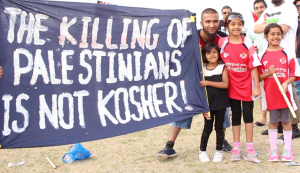Alex Salmond is possibly days away from being able to award himself the title of the man who freed Scotland, the man who created a new country, the man who broke from the chains and oppression of “The Westminster Elite”.
This modern-day William Wallace – a likeness I’m sure he would humbly accept – does not seem to care that his ambitions for political notoriety will impact everyone, not just the Scots. He talks as if the inhabitants of Westminster and, by association, England are no better than they are depicted in the film Braveheart. Instead of 182 minutes of rude and wildly dramatic (not to mention historically inaccurate) demonstrations of Anglophobia, we have endured months of equally sensational and even ruder statements from the real-life answer to Mel Gibson’s Wallace. The Scottish Salmond would admittedly be a mildly more acceptable choice for the role that took such liberties depicting the dreaded English and he’s already shown a preference for fiction over fact.
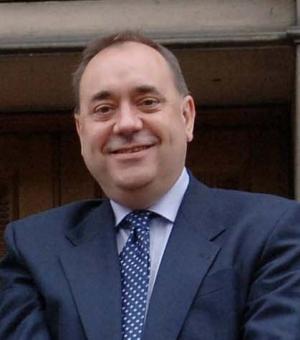
Alex Salmond MSP, First Minister of Scotland. Photo Cred: CC Wikipedia
Part of me would love to watch Mr Salmond get his way simply so I can watch the smug, self-congratulating smirk he carries slip away as he attempts to live up to every unrealistic promise he has made and answer every question he has dodged with that most coveted word: “scaremongering”. Of course it’s scaremongering – the uncertainty of independence is scary. It is not, and will not be the rose tinted vision of freedom and prosperity that Salmond purports. Reality doesn’t come in that colour; it’s dark and uncertain.
Let’s assume Scotland can keep the Queen who, apparently, would be proud to be Queen of Scots and content with the First Minister putting words in her mouth. Let’s assume they can keep the Pound, controlled by the Bank of England, and still call themselves independent with dignity. Let’s imagine they are accepted into the EU, UN, IMF and NATO and still get rid of Trident. Let’s assume their economic prosperity grows as an independent nation, despite dwindling oil reserves and without the cosy comfort of the Barnett formula. Let’s presume that they’ll continue to offer free higher education, free prescriptions and shield the NHS from cuts all the while reducing taxes and increasing public spending (which is already £1,200 higher per head than the rest of the UK). And let’s suppose that the banking industry and its jobs won’t go south and that people’s mortgages and pensions will be untouched – because they get to keep the Pound remember? Let’s assume that Mr Salmond’s grand plan has no gaping holes, that Scotland will have more money and be a fairer society because ultimately, none of these arguments really matter.The referendum is a question of identity, which is why it hurts so much.
Salmond would have us assume that he is fighting for the liberty of a hard done by, oppressed people. His ability to conjure hatred and division out of thin air is staggering and, like Braveheart, historical facts appear to have been forgotten. It would do little for Mr Salmond’s tale of Westminster-forged manacles to remind everyone that it was in fact a Scottish king that inherited the throne of England in 1603, that the story of political unification just over a century later 1707 was not a Goliath overpowering David tale, but an agreement that both sides entered into as equals. Scotland may once have been an independent nation but it isn’t now. England was once a Catholic monarchy – things change and they’ve changed for the better. We have introduced democracy, abolished slavery, lead global industrialisation and fought catastrophic world wars and we’ve done it together as a unified nation.
I’ve had many conversations with foreigners, Americans in particular, in which I have attempted to explain the makeup of the United Kingdom. I recently came up with an analogy that we are like a cycling peloton – each country an individual working together as a stronger pack. Yet if Scotland left, we could not just continue riding as if nothing had happened. This isn’t just about Scotland vs. Westminster as the debate has been played out. If there is a Yes vote everything will change for the English, Welsh and Northern Irish, specifically that we may revert to viewing ourselves as those three separate entities, rather than British.
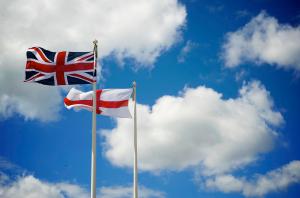
The British and English flags. Photo Cred: CC Wikipedia
“So are you English or British?” the confused American asks. I answer the latter because I know what it means to be British. When I think of Englishness I think of cream-clad cricketers on village green, pots of tea and punting somewhere in Oxfordshire. It’s idyllic but it doesn’t fully encompass my sense of national identity; it’s limited. When I think of Brits I do think of the cricketers, but I also think of my Grandma from Yorkshire, my university friend from Edinburgh and my Godfather living Swansea. I think of the Turkish man who runs my local offy, the football-mad Algerians across the road, the friendly Greek restaurant owner who never seems to have any customers, and my good friend who recently invited me to her Pakistani wedding.
The face of Britain has changed a lot over the last few centuries because we have embraced and included every culture into our own. We are known and admired for this multiculturalism, since when did that not include the Scottish culture? It is that unified attitude that has enabled us to continue punching above our weight in the world for so long. It is why I am proud so explain to baffled Americans that I may live in England, but I am British because to be so is limitless. Britain encompasses the best of every society and nationality with the Irish, Welsh, English, and Scottish at its core. The UK is by no means perfect. Rifts exist over just how multicultural we are as a nation and I fully support more devolved power, not just to the Celtic nations but also to regions across the UK. As a union we benefit from the pooled resources, but it comes as a package with the negatives that the individual countries should either take or leave. Cherry picking the established currency, monarch, global status and credit rating is not independence; it’s confused and cowardly.
The level of political engagement and public interest in this referendum is record breaking because this is about more than just politics. I know I cannot be alone in my frustration that my personal sense of cultural and national identity is being challenged and there is nothing I can do about it. It hurts that this challenge is coming from a place I considered part of my home but the tragedy is that if they do vote Yes, Scots and Brits will not part as friends – a situation entirely created by one man’s impeccable ability to mix fact and fantasy.
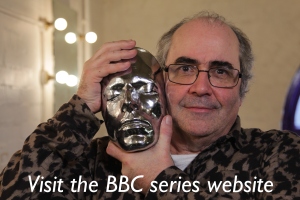 I worked across all 5 episodes finding and casting contributors from across the UK who not only had rare music memorabilia but a great story that would fit the narrative of each episode. I singlehandedly shoot interviews on a Canon XF305 as well as carried out on-camera interviews. I also set up locations, fact checked scripts, researched archive footage and was responsible for clearing all music.
I worked across all 5 episodes finding and casting contributors from across the UK who not only had rare music memorabilia but a great story that would fit the narrative of each episode. I singlehandedly shoot interviews on a Canon XF305 as well as carried out on-camera interviews. I also set up locations, fact checked scripts, researched archive footage and was responsible for clearing all music.